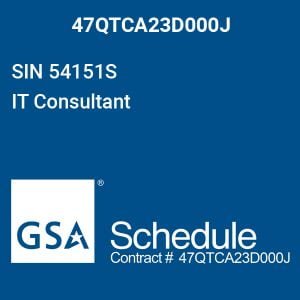Cloud computing offers numerous advantages for businesses in the digital era. This innovative technology delivers greater storage capacity and processing power via the internet. Organizations can generate significant business value with cloud computing by embracing cloud technology and using it in their day-to-day operations.
What does cloud computing consist of?
The general definition of cloud definition states that it is a model for facilitating easy on-demand access to a shared set of computer resources. This includes networks, servers, data storage hardware, applications, and digital services. These resources can be readily delivered by cloud service providers via the internet and require little to no management effort from the client side.
Unlock the future of intelligent applications with our cutting-edge Generative AI integration services!
Characteristics of cloud computing
To understand the numerous benefits that cloud computing offers businesses, we need to look at the characteristics that this technology possesses.
The primary characteristics of cloud solutions are:
- Resources on-demand
- Accessible via networks
- Resource sharing
- Fast scalability
- Measured services
Resources on-demand
One of the defining traits of cloud computing is providing resources to clients on-demand. Users can access server capacity and digital storage spaces as needed, and without purchasing additional hardware or interacting with their cloud service provider.
Resource sharing
All public-cloud infrastructure is multi-tenant. This means the websites and applications users have created are hosted alongside those created by other users. The advantage of this approach is that it makes public cloud services more affordable for clients.
However, the cloud service provider may need to offer special security measures to ensure that your sensitive data is not shared with other users. A proactive service provider will identify any vulnerabilities in the system and patch them before they can be exploited by other users.
Many private clouds offer resources through a multi-tenant system as well. In this scenario the users may be different individuals or groups from the same organization. However, cloud service providers can also offer single-tenant cloud architecture. This system is ideal for handling sensitive information and provides greater control over your data, security, storage, and performance.
-
 GSA HACS Principal Security Architect$153.15
GSA HACS Principal Security Architect$153.15 -
 GSA IT Consultant$81.12
GSA IT Consultant$81.12 -
 GSA Cloud Senior Microservices Consultant$129.41
GSA Cloud Senior Microservices Consultant$129.41
Fast scalability
One of the more groundbreaking characteristics of cloud computing is its rapid scalability. With this technology, businesses can access additional resources as soon as they require them. Cloud architecture scales up and down in response to demand. These changes are implemented automatically in many cases.
Organizations can save on their expenditures by relying on cloud architecture scaling. These savings arise because clouds can provide additional computing resources without the organization needing to purchase additional hardware.
If your business needs to perform a complex activity that it has never attempted before, it can carry it out using the additional resources offered by the cloud system. This is in contrast to other types of systems where organizations have to contact their service providers to request additional resources beforehand.
Measured services
Services providers can keep track of the resources they are offering clients. These services are often provided on a pay-per-use basis, which can save organizations on operating costs.
For this reason, all cloud resources are monitored, measured, and relayed by service providers. If an organization no longer wishes to use a particular service or resource, they won’t have to worry about paying for it in the future.
How does cloud computing generate significant business value with cloud computing for competitive edge?
The goals of gaining Competitive Advantage from Cloud Computing are realized in unexpected areas including advanced customer relationships driven by big data analytics, precise business decision making from cloud decision support systems, and enhanced business collaborations. Further information available at Competitive Advantage from Cloud Computing.
Cloud Big Data Analytics
Big Data refers to data sets that are extremely large and complex, and require special tools to be processed and analyzed. The information that can be obtained from these data sets is valuable; however, it needs to be extracted and transformed into a format where it can be easily understood and utilized for other purposes.
Organizations rely on Big Data Analytics to learn more about market conditions and predict consumer behavior. This information can then be used to make key business decisions for steering the company ahead. Cloud services can make Big Data analysis capabilities accessible to organizations of all sizes.
The ability to analyze big data in cloud systems creates competitive advantage from cloud computing by improving access and affordability of complex software for small and medium sized enterprises. Traditionally Cloud Big Data Analytics requires the acquisition of expensive software, licensing, and hardware platforms cost prohibitive to the ordinary business users.
In addition, current cloud big data analytics systems do not require sophisticated technical expertise to perform calculations. Easier access to Big Data Analytics levels the playing field and allows smaller organizations to enjoy an edge over larger competitors who do not utilize information from such data sets.
Cloud Business Models
Cloud-based business models offer organizations the ability to deliver their products immediately. This set-up typically runs into fewer issues as the cloud service provider takes care of any problems that arise. Businesses can then focus their resources on other areas such as planning and marketing.
The software as a service (SaaS) offered by service providers are often more reliable than the ones hosted by the organization’s in-house IT department. All these advantages make creating a business model using cloud computing an attractive option for businesses.
Cloud Decision Support Systems
Decision support systems are information systems that aid businesses in their decision-making and operations. They do this by combining data, knowledge, and business models to generate solutions. However, making decisions for rapidly changing problems can be challenging.
Cloud decision support systems are offered as software as a service (SaaS) and enable all organisations to access and benefit from decision support systems without the high costs associated with these solutions.
Cloud Business Collaboration
The improvements in competitive advantage from cloud computing collaboration systems originate from rapid exchange of decision capable information to those who consume decision information. The sharing of decision information in a cloud platform from any information format and type, enables a higher level of business collaboration and value through decision accuracy, speed, and analysis.
When choosing Cloud Computing Technologies as your consulting partner for Competitive Advantage from Cloud Computing, you can rely on the quality of our work, efficiency, and our ability to develop innovative cloud solutions on-time within budget. By focusing on delivering maximum measurable Return-on-Investment (ROI), Cloud Computing Technologies produces winning cloud technology strategies to win in competitive environments.
Contact Cloud Computing Technologies today for a no-obligation generate significant business value with cloud computing proposal! We specialize in developing cloud computing strategic advantage, cloud decision support systems, and cloud big data analytics systems.
Further blogs within this Best Formula for Cloud Innovation category.

